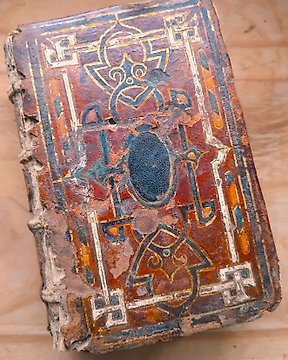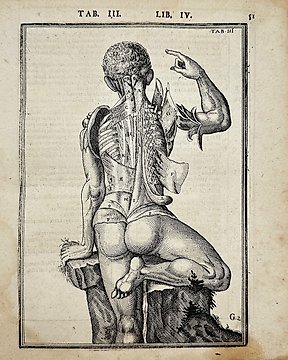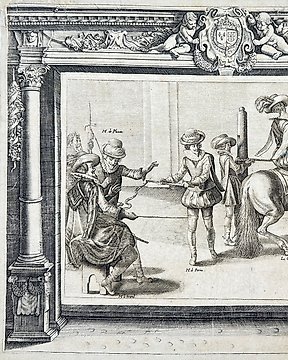
Crispijn de Passe II, “The Instruction of the King in the Exercise of Riding a Horse" - 1666
Catawiki is continuously updating its technology. You are currently using an outdated browser. To optimise your browsing experience, please update your browser.
You can set your cookie preferences using the toggles below. You can update your preferences, withdraw your consent at any time, and see a detailed description of the types of cookies we and our partners use in our Cookie Policy.
No. 84646959
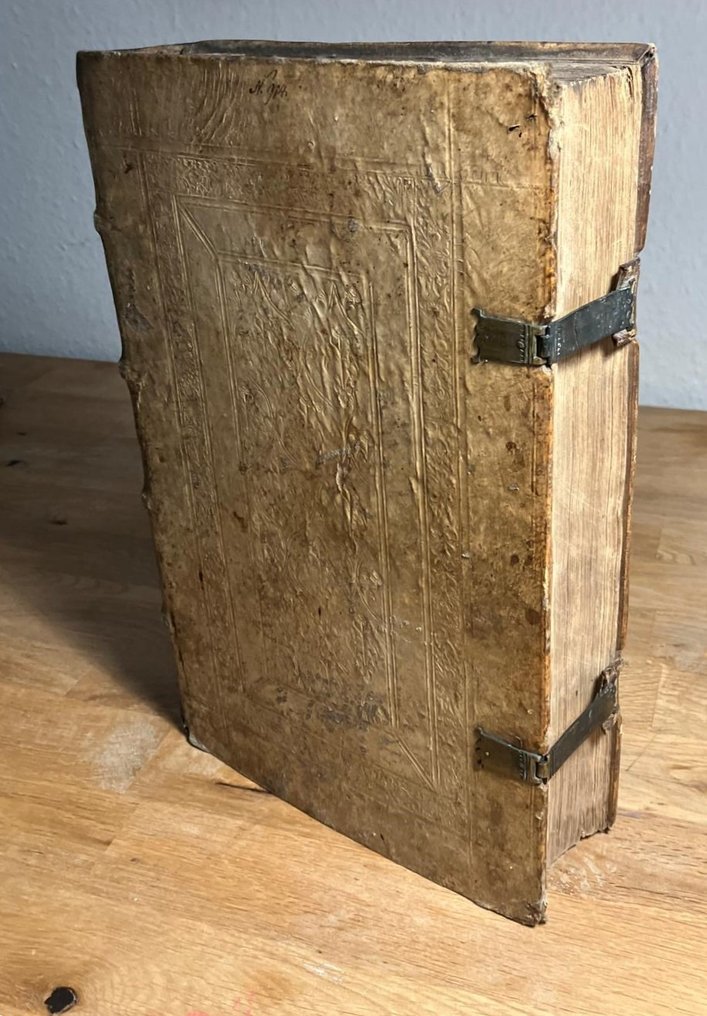
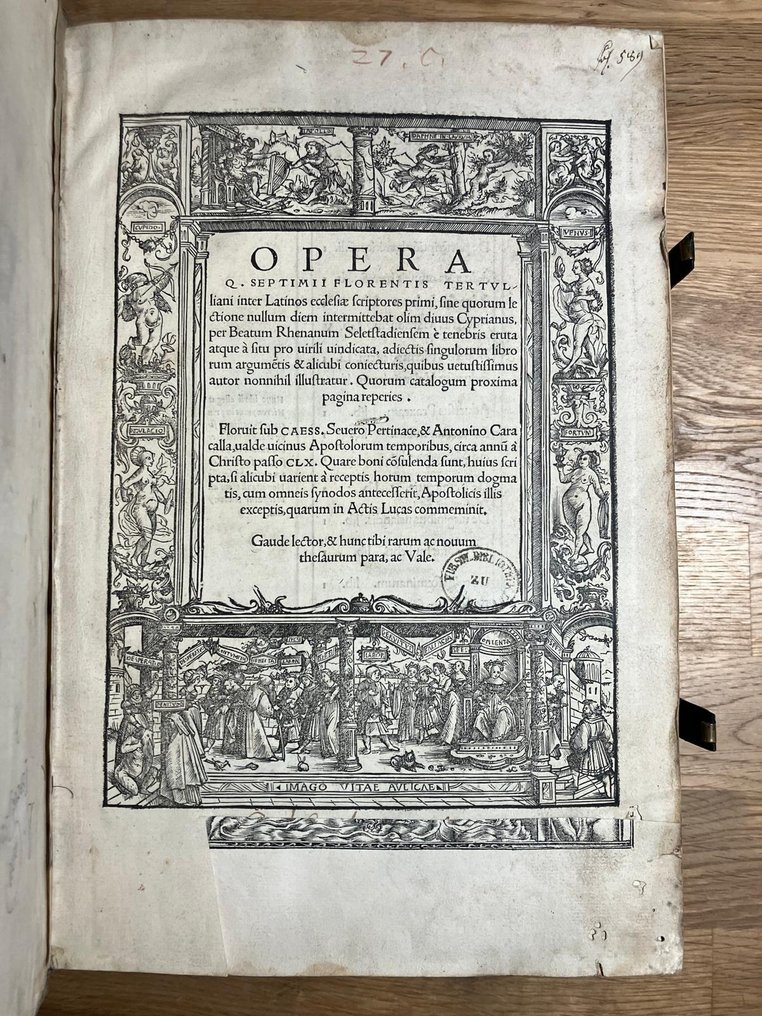
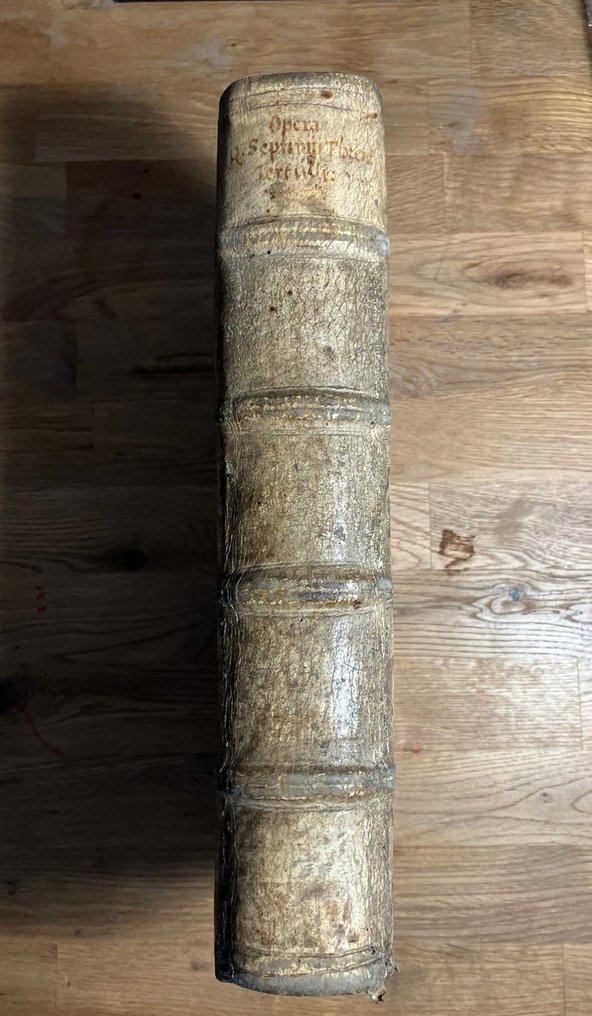
In folio (32 x 21 cm); 14 cc., 615 pp., (1) p., 34 cc. (last bl.), 3 woodcut borders, numerous woodcut initials, 2 large woodcut printer marks; frontispice with 5x14 cm lower part removed (probably with ownership entry), a single wormhole and a few stains. Old unreadable library stamps on title and end. Apart from those small defaults an exceptional genuine and clean copy on strong crisp paper and bound in contemporary vellum on wooden boards with original brass clasps. Complete.
Editio princeps, edited by the humanist Beatus Rhenanus of Selestadt and printed by Froben in Basel. It is considered the most sumptuous of the editions with fine engravings and broad margins, featuring the metal engravings attributed to Hans Holbein the Younger. "These engravings had been used in June 1518 to illustrate the edition of the Lives of the Caesars of Suetonius (and other authors), and represent the legend of Tantalus, king of Lydia who, admitted to the table of the gods, stole nectar and ambrosia in order to give them to mortal men. Then, to test divine prescience, he killed his own son Pelops and served his flesh to the gods at a banquet. Thrown into Tartarus, Tantalus was chained to a tree, heavy with fruit, in the middle of a limpid lake. Tormented by hunger and thirst, whenever he sought to drink the water level fell below his grasp, and when he reached for the fruit they lifted out of his reach (see lower figure). The figurines at the sides evoke the story of Pelops, cut into pieces by resuscitated by Zeus/Jupiter -- represented here deliberating with Hermes/Mercury. Jupiter replaces the shoulder that Demeter/Ceres had eaten with a piece of ivory." (Charles Munier).
Born in Carthage, Roman African province Quintus Septimius Florens Tertullianus was a distinguish thinker and, after his conversion to Christianity, a respected theologist. Called "the father of Latin Christianity", as well as "the founder of Western theology" he was the first Latin author to use the term Trinity and develop the dogma.
This edition by Rhenanus was put at the Index by the Roman Catholic Church; first in that of Paul IV, in 1559, which condemned all the works of Rhenanus.
In folio (32 x 21 cm); 14 cc., 615 pp., (1) p., 34 cc. (last bl.), 3 woodcut borders, numerous woodcut initials, 2 large woodcut printer marks; frontispice with 5x14 cm lower part removed (probably with ownership entry), a single wormhole and a few stains. Old unreadable library stamps on title and end. Apart from those small defaults an exceptional genuine and clean copy on strong crisp paper and bound in contemporary vellum on wooden boards with original brass clasps. Complete.
Editio princeps, edited by the humanist Beatus Rhenanus of Selestadt and printed by Froben in Basel. It is considered the most sumptuous of the editions with fine engravings and broad margins, featuring the metal engravings attributed to Hans Holbein the Younger. "These engravings had been used in June 1518 to illustrate the edition of the Lives of the Caesars of Suetonius (and other authors), and represent the legend of Tantalus, king of Lydia who, admitted to the table of the gods, stole nectar and ambrosia in order to give them to mortal men. Then, to test divine prescience, he killed his own son Pelops and served his flesh to the gods at a banquet. Thrown into Tartarus, Tantalus was chained to a tree, heavy with fruit, in the middle of a limpid lake. Tormented by hunger and thirst, whenever he sought to drink the water level fell below his grasp, and when he reached for the fruit they lifted out of his reach (see lower figure). The figurines at the sides evoke the story of Pelops, cut into pieces by resuscitated by Zeus/Jupiter -- represented here deliberating with Hermes/Mercury. Jupiter replaces the shoulder that Demeter/Ceres had eaten with a piece of ivory." (Charles Munier).
Born in Carthage, Roman African province Quintus Septimius Florens Tertullianus was a distinguish thinker and, after his conversion to Christianity, a respected theologist. Called "the father of Latin Christianity", as well as "the founder of Western theology" he was the first Latin author to use the term Trinity and develop the dogma.
This edition by Rhenanus was put at the Index by the Roman Catholic Church; first in that of Paul IV, in 1559, which condemned all the works of Rhenanus.



